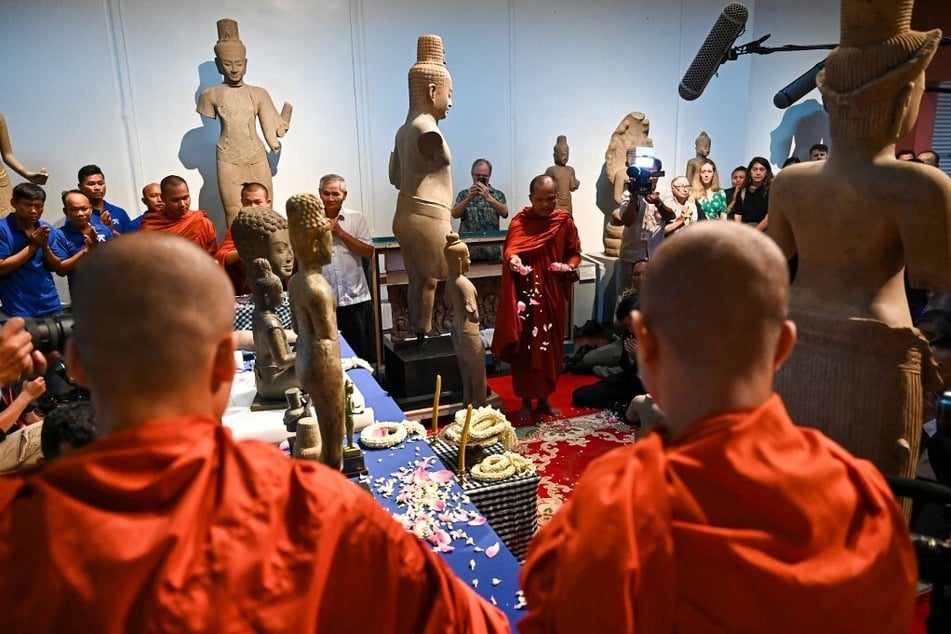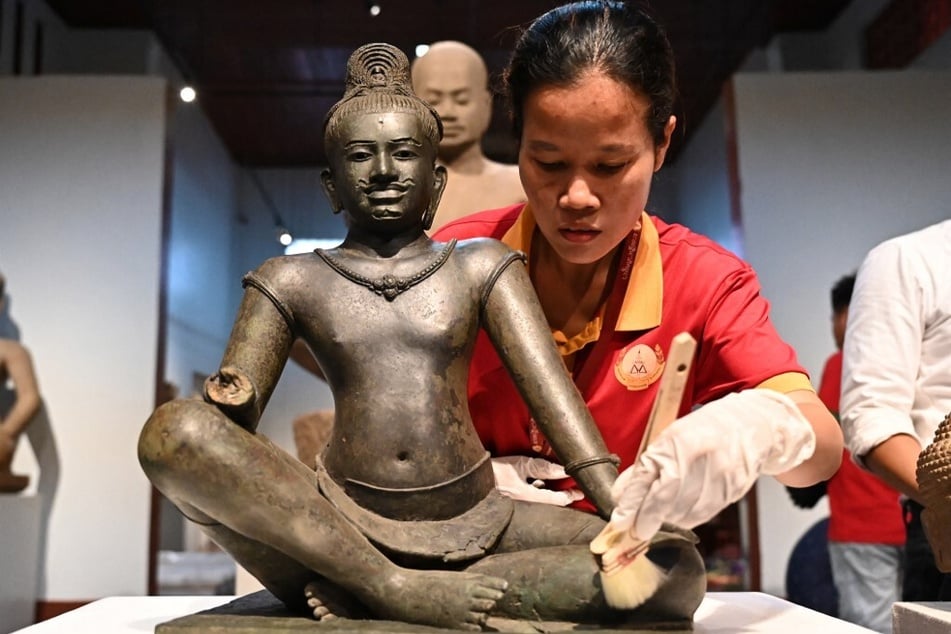New York's Met Museum returns trafficked artifacts to Cambodia
Phnom Penh, Cambodia - Buddhist monks in the Cambodian capital Phnom Penh chanted blessings and threw flowers on Thursday to welcome 14 trafficked artifacts repatriated from the Metropolitan Museum of Art in New York.

The Angkorian artworks, which included a 10th century goddess sandstone statute and a large Buddha head from the 7th century, were stolen by antiquities trafficker Douglas Latchford before ending up in New York.
"I am so glad and so happy to see our ancestors back home," Cambodian Culture Minister Phoeurng Sackona said at the repatriation ceremony.
"We have many more treasures at the Met which we also hope will be returned to Cambodia," she added.
Sackona said more than 50 stolen artifacts would return to Cambodia from the US in the near future.
The minister also called on private collectors and museums around the world to follow the Met and return looted artifacts.
"This return of our national treasures, held by the Met, is of utmost importance not only for Cambodia, but for all of humankind," she said.
Growing demands for repatriation of stolen art

Latchford, who died aged 88 at his home in Bangkok, was widely regarded as a scholar of Cambodian antiquities, winning praise for his books on Khmer Empire art.
He was charged in 2019 by prosecutors in New York with smuggling looted Cambodian relics and helping to sell them on the international art market.
The Met said in December that it would return 14 antiquities to Cambodia and two to Thailand after they were linked to disgraced Latchford.
A 900-year-old statue of the Hindu god Shiva and a bronze sculpture of a female figure were returned to Thailand by the museum in May.
Thousands of statues and sculptures are believed to have been trafficked from Cambodia from the mid-1960s to the 1990s, while sites in neighboring Thailand were also hit by smugglers.
The return of the items comes as a growing number of museums worldwide discuss steps to repatriate looted artworks, particularly those taken during the colonial era.
Cover photo: TANG CHHIN SOTHY / AFP

